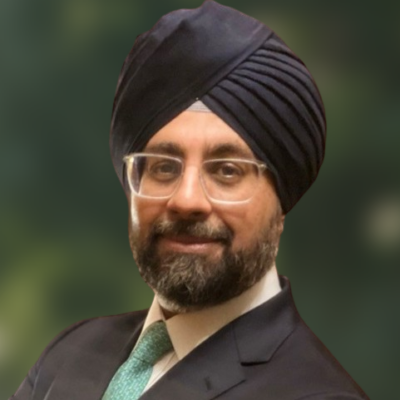29/05/2019
Ali v Capita & Hextall : A step back for Equality in Parental leave
In its judgment, handed down on 24th May, the Court of Appeal has chosen to maintain the status quo, and arguably take a step back in relation to the equality of treatment of parents by employers after the birth of a child.
Ijeoma Omambala and Deshpal Panesar appeared for Mr Ali in his appeal seeking parity of pay for men with women taking leave to care for newborns after childbirth.
The Appeals
Two appeals, concerning similar subject matter, but different claims, were heard together:
(i) Ali V Capita
Mr Ali and his wife had a daughter in 2016. Mr Ali’s employer’s Shared Parental Leave Policy provided that men were entitled to full pay for care in the two weeks after birth. For the following 12 weeks (the 12 week period from weeks 3-14), men were entitled to (much lower) statutory shared parental leave pay only. In contrast Mr Ali’s wife, on maternity leave was entitled to full pay for 14 weeks after the birth of the child. Her doctor advised that she should return to work after 2 weeks, which she did. Mr Ali was obliged to take 12 weeks SPL at much lower pay than his wife would have been entitled to on maternity pay. He brought claim of direct sex discrimination which was upheld by the ET, but overturned by the EAT.
Mr Ali appealed to the Court of Appeal to overturn the EAT judgment on the basis that:
- (a) The label (Maternity leave/ SPL) given to a policy of differential rates of pay for childcare was not a material difference. After the first 2 weeks post childbirth, which are properly attributable to the health and safety of mother and child, men and women are properly comparators. The purpose of leave after the first two weeks is the care of the child, a function that can be performed by either men or women. Differential pay is therefore direct discrimination against men in appropriately comparable circumstances.
- (b) The domestic statutory limitations in the discrimination legislation, which has its origin in EU law, on men claiming discrimination in relation to pay during parental leave had been overtaken by changes in EU and domestic policy which aim to achieve parity of treatment for men an women in relation to child care roles.
- (c) There is not a ‘bright line’ around maternity related benefits. The proper approach is that described by the EAT in Eversheds Legal Services v De Belin [2011] ICR 1137. Namely differential treatment is only lawful in so it is proportionate in protecting and compensation a woman from the disadvantages arising from childbirth.
(ii) Chief Constable of Leicestershire Police v Hextall
Mr Hextall was a police officer. His force’s Maternity Leave Policy entitled women to 18 months leave on full pay. Men on Shared Parental Leave, in contrast were entitled only to the (lower) statutory rate of pay. Mr Hextall took SPL after the birth of his child. He brought a claim for indirect sex discrimination on the basis that the lower pay on SPL caused particular disadvantage to men. The ET dismissed his claim. The EAT overturned the ET, finding unlawful indirect sex discrimination.
The Chief Constable appealed, arguing that the Mr Hextall’s claim was, properly characterised, a claim for equal terms.
The Court of Appeal
Ali v Capita
Notwithstanding singling out Ijeoma Omambala’s submissions for their ability and sophistication, the Court of Appeal rejected Mr Ali’s appeal, finding:
- (i) Women on maternity leave were not comparable to men on SPL. Maternity leave and pay is given to women to assist them in recovering from the physical and psychological effects of childbirth.
- (ii) The purpose of maternity leave and pay had not been changed by either changes in EU or domestic policy, including the introduction of Shared Parental Leave.
- (iii) The proper comparator for direct discrimination purposes was a woman on SPL, who would therefore be on the same terms as a man and not receive any favourable treatment.
As such Mr Ali’s appeal failed. Application has been made for permission to appeal to the Supreme Court.
Hextall
The Court of Appeal overturned the EAT’s finding that Mr Hextall had been the subject of unlawful indirect discrimination on the basis that:
- (i) His claim, properly characterised was a claim for breach his terms as modified by the sex equality clause.
- (ii) As such, such his claim was defeated by the protection in the Equality Act for terms of work affording special treatment to women in connection with pregnancy or childbirth.
- (iii) Thirdly that such a claim was further barred by the prohibition on indirect discrimination claims in respect of matters that were in fact equal terms claims.
As such The Chief Constable’s appeal was allowed, and Mr Hextall’s claim for indirect discrimination dismissed. Application for leave to appeal to the Supreme Court has been made in Mr Hextall’s case too.
The decisions in these appeals not only maintain the status quo in relation to the differential treatment of parents during leave to care for newborn children, they also take step back. The decision in Hextall, as it stands rules out indirect discrimination challenges claims in principle. It is likely, whether in these cases or otherwise, that such differential policies will be the subject of future challenge.
Ijeoma Omambala and Deshpal Panesar appeared for Mr Ali.
shared parental leave; supreme court; court of appeal; judgment





